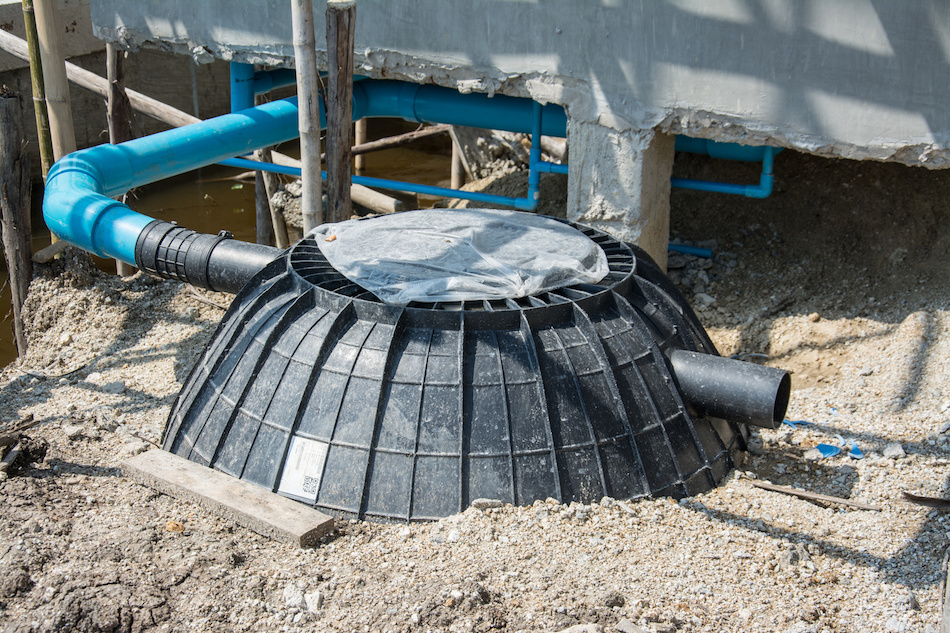 Buying a home in a some areas, even luxury and waterfront homes, can often mean owning a home with an on-site septic system. With no available municipal sewer service in most rural areas, on-site septic systems provide an efficient, low-maintenance way to handle and process home waste in a sanitary manner. Although designs can vary, depending on the soil, location, and other specific details regarding the home, most on-site septic systems consist of a waste pipe, a septic tank or tanks, and a drain field to filter the resulting effluent safely into the soil. When these systems are functioning properly and have been correctly designed and installed, there is little evidence of their existence visible above the level of the soil.
Buying a home in a some areas, even luxury and waterfront homes, can often mean owning a home with an on-site septic system. With no available municipal sewer service in most rural areas, on-site septic systems provide an efficient, low-maintenance way to handle and process home waste in a sanitary manner. Although designs can vary, depending on the soil, location, and other specific details regarding the home, most on-site septic systems consist of a waste pipe, a septic tank or tanks, and a drain field to filter the resulting effluent safely into the soil. When these systems are functioning properly and have been correctly designed and installed, there is little evidence of their existence visible above the level of the soil.
Before buying a more rural home, like in the housing market of Colts Neck, NJ with an on-site septic system, however, prospective buyers should take time to learn about the system and how to ensure it is functioning correctly.
Get the details before signing a purchase offer on the home
While it is true that septic systems work quietly in the background through years of use, they can fail due to age, improper maintenance, or some type of misuse or damage. Unfortunately, signs of a failing or failed septic system may not be easy to spot. Before buying any home serviced by its own on-site septic system, prospective buyers should:
- Look for documentation of age, size, location, and specific details about the materials used (this information can usually be provided by the current owner of the home or may be accessible through county health departments where septic system permits are filed)
- Find out if the home has been vacant for long periods of time and how many occupants have been living in the home (septic systems that are unused for long periods of time or those that are used beyond the capacity they were designed for can be at higher risk of failure)
- Find out when was the system last maintained and why (having a septic tank pumped out on a periodic basis can help to keep the entire system working well throughout its lifespan but tanks that have to be pumped frequently may be a sign that the system is overloaded or has failed and can no longer process waste effectively)
Insist on a septic inspection as part of the home buyer inspection process
Septic inspections are not part of the typical home inspection process. Prospective buyers who want the benefits of a septic inspection under the inspection contingency clause of their purchase offer can have one done by a reputable septic inspector or licensed septic installer. A thorough septic inspection will include:
- Locating the components, including the waste pipe, septic tank or tanks, and the drain field as well as any pumps, filters, or other accessories or components the system may have
- A visual inspection of the area in which the system is installed to look for wet or depressed areas, standing water, or signs that the system is not performing properly, such as odor
- One or more additional tests to determine if the system is functioning properly, such as a probe test, septic dye testing, or soil percolation tests
If a problem is suspected, the septic inspector may want to excavate suspicious areas so the components can be visually examined. Since this can be a very invasive process, the sellers will need to grant permission before this type of testing can proceed. As with all types of buyer inspections, it is important to remember that the buyer is responsible for the cost of performing the inspections. Any repairs or renovations required can then be addressed through the negotiation process.
Prospective buyers who have additional questions about home septic systems should speak with their real estate professional. Their agent will be able to help them understand the prevalence of on-site septic systems in the area and help them find additional information about maintaining them.

Leave A Comment